Do children also transmit the disease? Are smokers a risk group? Can we withdraw cash at ATMs? Does the disease last the same for all people? Together with the General Directorate of Health, the Polygraph gives you essential information about the virus that has put the world on alert.
1 – Can we take coffee cups or cutlery in a restaurant?
All restaurants must comply with HACCP standards in order to be open to the public. Restaurants must comply with hygiene and disinfection rules, and be equipped with dishwashers that reach high temperatures. When washed with detergent and hot water, these objects do not pose any risk of infection to people. After drinking coffee and after eating, wash your hands or rub them with an alcohol-based solution for 20 seconds.
Polygraph Evaluation: True, but…
2 – Do children also transmit the disease?
Yes, children who are infected with SARS-CoV-2 or who are in the incubation stage also transmit the disease. Due to the marked proximity between children, the very close contact during play and the sharing of toys with droplets and secretions, can be a great transmitter of COVID-19. As younger children are vulnerable and do not yet have the ability to defend themselves and make decisions about their own protection, they depend on adults for this.
Polygraph Evaluation: Real
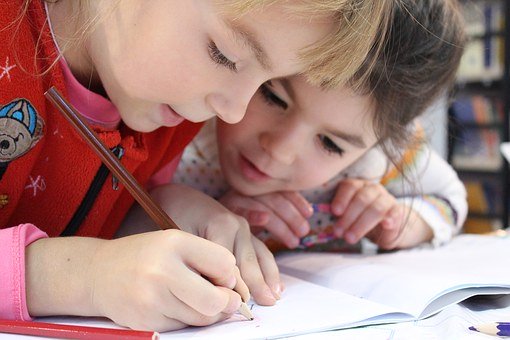
3 – Is it essential to take a screening test?
Testing should not be done under any circumstances. Call the SNS24 Line and you will be advised on the measures to be taken, including the need or not to take the test. If you have a fever, cough or difficulty breathing and have been in contact with a person infected with COVID-19, or have returned within the last 14 days or reside in an affected area, you should call SNS24 (808 24 24 24). After this contact and validation of the clinical history, the validating physician will determine if it is necessary to be tested for COVID-19. All validated suspected cases (that meet the criteria for acute respiratory infection and epidemiological criteria) are tested. These tests can be performed in the NHS and in private laboratories.
Polygraph Evaluation: False
Due to the marked proximity between children, very close contact during play and the sharing of toys with droplets and secretions can be a great transmitter of COVID-19.
4 – Does a smoker have more chances of not resisting the virus than a non-smoker?
A long-term smoker already has pulmonary alterations that may be associated with pneumonia in case of infection by COVID-19.
Polygraph Evaluation: Real
5- What about passive smokers, are they also more fragile? If so, how many times more than a “normal” person?
Clinical risks need to be assessed on a case-by-case basis, as each individual's response to infection will vary greatly. However, it is known that a person exposed to secondhand smoke for 8 hours a day has similar risks to a person who smokes 10 cigarettes.
Polygraph Evaluation: Real
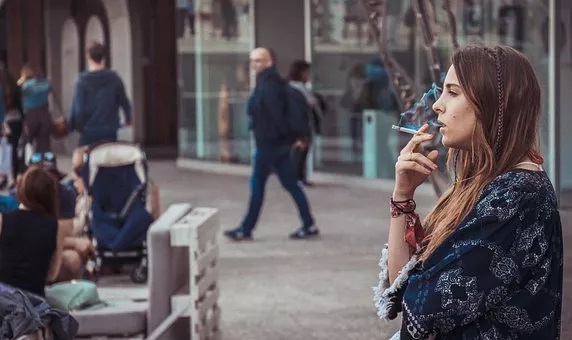
A long-term smoker already has pulmonary alterations that may be associated with pneumonia in case of infection by COVID-19.
6- Can tobacco be shared with another person?
No – you must not share any personal effects, including tobacco, with other people. The virus is transmitted through our mucous membranes (mouth, eyes and nose).
Polygraph Evaluation: False
7 – Can we share drinking glasses?
No – you must not share with other people any objects of personal use, including drinking glasses. The virus is transmitted through our mucous membranes (mouth, eyes and nose).
Polygraph Evaluation: False
It is known that a person exposed to secondhand smoke for 8 hours a day has similar risks to a person who smokes 10 cigarettes.
8 – Is it necessary to have the 3 symptoms mentioned (fever, dry cough and pulmonary difficulty) or is it enough for one or two of them? For example, if I have a cough and difficulty breathing but don't have a fever, should I call the 24 Health Line anyway?
At this moment, there are three situations in which a case can be considered suspicious for COVID-19.
- Patient with acute respiratory infection (sudden onset of fever or coughing or difficulty breathing), no other illness explaining symptoms + history of travel or residence in areas with active community transmission, within 14 days before symptom onset;
- Patient with acute respiratory infection + Contact with confirmed or probable case of SARS-CoV-2 or COVID-19 infection within 14 days of onset of symptoms;
- Patient with severe acute respiratory infection, requiring hospitalization, with no other associated cause.
In these cases, you should call the SNS24 Line and tell them your situation and wait for them to give you directions on how to act.
Polygraph Evaluation: False
9 – Are the treated patients immunized or can they be infected again?
There is evidence that the human organism gains immunity after contact with the virus, after contracting the disease, an effect that can be amplified when there is a vaccine. But as there is the possibility of the virus mutating, there is still no definitive certainty on the matter.
Polygraph Evaluation: Inaccurate
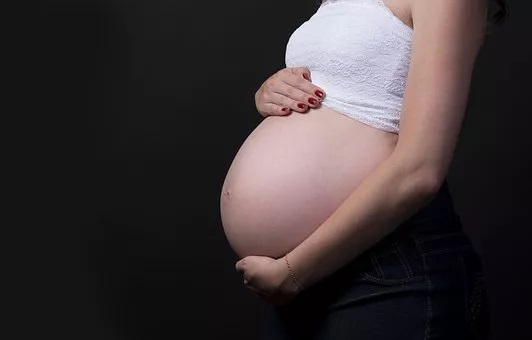
10 – Should pregnant women have special care?
According to current evidence, there is no indication that pregnant women are at increased risk associated with COVID-19. However, it is known that pregnant women are at greater risk of severe morbidity and mortality from some respiratory diseases such as influenza or SARS. Therefore, they should be considered as a risk group and have special care to prevent infection, similarly, for example, to the elderly.
Pregnant women must comply with the measures of distancing or social isolation recommended by the General Directorate of Health. Stay at home and only leave the house if strictly necessary.
Polygraph Evaluation: Real
11 – Can the virus survive for several days on solid surfaces and tissue?
Yes, if these surfaces are not frequently cleaned and disinfected. In our own home or in public spaces, the frequency of cleaning must be increased, precisely so that there is no accumulation of viruses on the surfaces. Common household detergent and disinfectant should be used – just use bleach or alcohol.
Polygraph Evaluation: Real
12 – Are children and young people with type 1 diabetes (insulin dependent) considered at risk?
Yes. Anyone with diabetes, regardless of their age, is always at higher risk if they become ill with COVID-19, although the risk is always higher in the elderly. A child or young person with type 1 diabetes, due to their disease, has a higher risk than a healthy child or young person.
Polygraph Evaluation: Real
13 – Can a person with the virus, but asymptomatic, infect another?
It is still under study, but the literature points to a very low probability of an asymptomatic person transmitting the virus.
Polygraph Evaluation: Inaccurate
14 – Can the contagion be through the air, during a walk or any other trip?
The contagion does not occur through the air, but through respiratory secretions or droplets and during invasive medical procedures that produce aerosols. The droplets that this person expels can enter directly into the mouth, eyes or nose and cause an infection.
Complying with the social distance advised by the Directorate-General of Health or staying at home are good measures to prevent infection at this stage.
Polygraph Evaluation: False
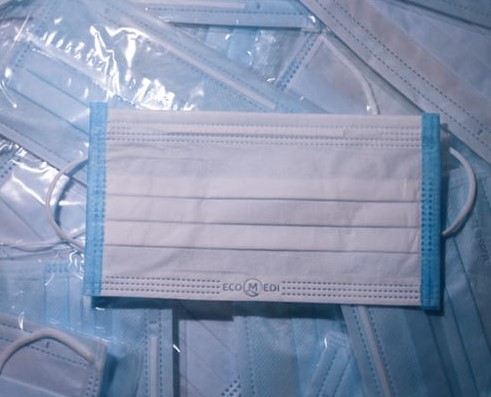
15 – Is touching metal surfaces or handrails enough to catch the virus?
Metallic or other surfaces do not directly transmit the virus. They only transmit the virus if you touch your hands on a dirty surface or with respiratory secretions or droplets and if you put your hands in your mouth, nose or eyes – if they are washed regularly, this contagion is avoided.
Polygraph Evaluation: False
16 – Does the disease last the same time in all people?
No. It can last up to five weeks. The duration depends on each patient, their immune system and whether or not there are associated chronic diseases, which alter the level of risk.
Polygraph Evaluation: False
17 – If you have not had any contact with someone infected, in addition to complying with social distancing, should you stay at home?
If you are given prophylactic isolation, you should stay at home. If you have to go outside, avoid close contact with people or indoors. Social distancing, as a public health measure, is applied by the precautionary principle, to prevent possible exposure to infected people.
Polygraph Evaluation: False
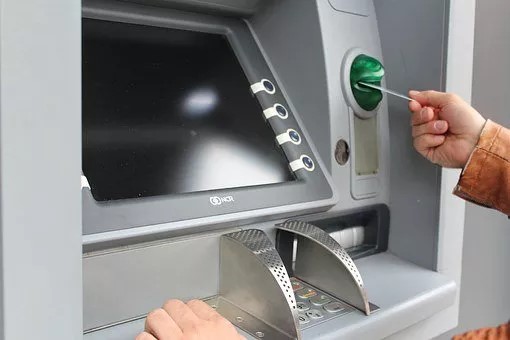
18 – Is it safe to withdraw money from an ATM?
Yes, but with a lot of precautions. After taking the money out of the machine and putting it in your wallet, wash your hands with soap and water or rub your hands well for 20 seconds with an alcohol-based solution.
Preferably, pay for your purchases with an ATM card, which only the ATM card touches, thus avoiding going to the ATM many times. If you don't have the alcohol-based solution or soap and water nearby, try not to put your hand in your eyes, mouth or nose. Once you get home, wash your hands with soap and water for 20 seconds.
Polygraph Evaluation: True, but…
***
Editorial note: This article was produced by the editors of the Polygraph and scientifically validated by the General Directorate of Health, within the scope of a partnership established between the two entities on a topic that is of unquestionable public interest.
Editorial Note of Sul Informação: This fact-check was originally published in Poligrafo on March 16, at 19:06 pm and can be read here.
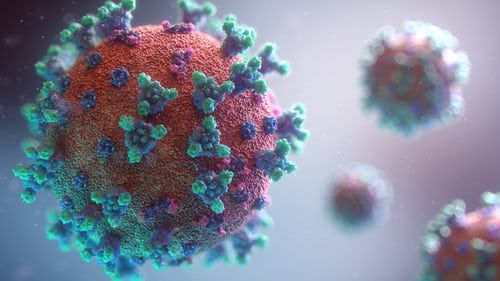


















Comments